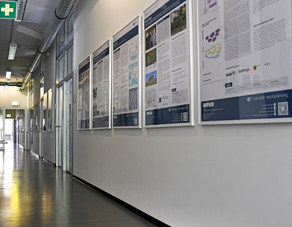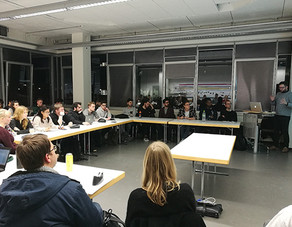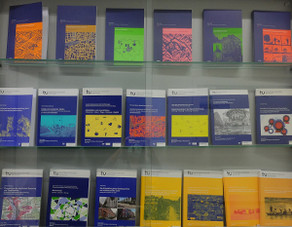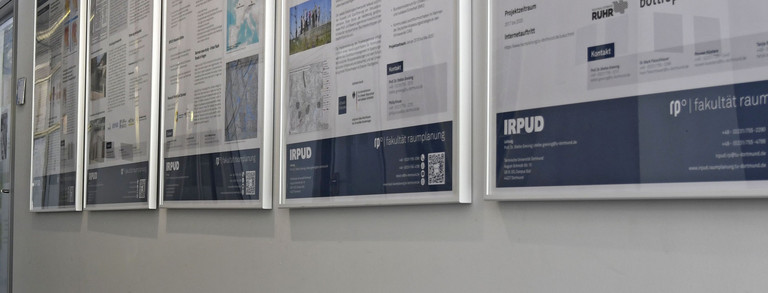Kick-start “Urban-Act: Integrated Urban Climate Action For Low-Carbon & Resilient Cities” Asia-Pacific collaboration on climate-resilient cities
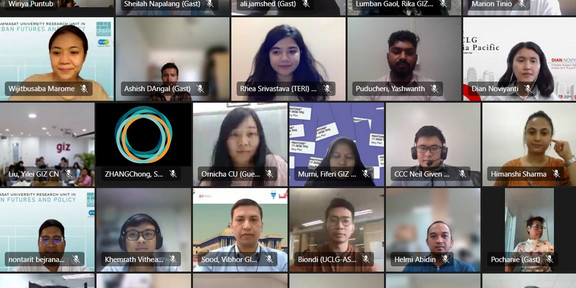
TU Dortmund University (IRPUD) and University of Stuttgart (IREUS & ISV) are partnering with the national consortiums in the Asian-Pacific region (Thailand, Philippines, Indonesia, India, and China) in supporting the transformation towards inclusive, resilient, and climate-friendly cities through multi-level collaboration and evidence-based approaches. At the starting point of the project, the focus is on creating mutual understanding and systematization of integrated planning and legal and policy frameworks related to climate resilience and low carbon development. As part of this effort, IRPUD organized online Urban-Act expert workshops on Integrated Climate Resilience Planning and Systematization of Climate Resilience Laws and Policies in June 2023. Over 60 experts in the field of spatial planning, climate adaptation policy, and transport policy participated in these workshops to brainstorm and identify problems, needs, and enabling and disenabling factors for integrated planning for climate-resilient development for India, Philippines, and Thailand. The workshop results will be used as key inputs for scrutinizing similarities and diversities as well as extracting common pain points and mutual potentials of the Urban-Act partner countries. Based on these inputs, the consortium aims to enhance further discourse for regional policy recommendations and initiatives. At the same time, a diversity of challenges and prospects will be taken further to establish empirical evidence and create the enabling environment for integrated planning for climate-resilient development in both pilot cities and sectoral policy levels of the project partner countries, especially in India, the Philippines, and Thailand. By working together, TU Dortmund University and the University of Stuttgart, along with the project national and other regional partners, aim to empower local partners to plan and implement evidence-based and inclusive actions for sustainable, low-carbon and resilient urban development in line with their development interests, national agenda, the Paris Agreement and the 2030 Agenda.TU Dortmund University (IRPUD) and University of Stuttgart (IREUS & ISV) are partnering with the national consortiums in the Asian-Pacific region (Thailand, Philippines, Indonesia, India, and China) in supporting the transformation towards inclusive, resilient, and climate-friendly cities through multi-level collaboration and evidence-based approaches. At the starting point of the project, the focus is on creating mutual understanding and systematization of integrated planning and legal and policy frameworks related to climate resilience and low carbon development. As part of this effort, IRPUD organized online Urban-Act expert workshops on Integrated Climate Resilience Planning and Systematization of Climate Resilience Laws and Policies in June 2023. Over 60 experts in the field of spatial planning, climate adaptation policy, and transport policy participated in these workshops to brainstorm and identify problems, needs, and enabling and disenabling factors for integrated planning for climate-resilient development for India, Philippines, and Thailand. The workshop results will be used as key inputs for scrutinizing similarities and diversities as well as extracting common pain points and mutual potentials of the Urban-Act partner countries. Based on these inputs, the consortium aims to enhance further discourse for regional policy recommendations and initiatives. At the same time, a diversity of challenges and prospects will be taken further to establish empirical evidence and create the enabling environment for integrated planning for climate-resilient development in both pilot cities and sectoral policy levels of the project partner countries, especially in India, the Philippines, and Thailand. By working together, TU Dortmund University and the University of Stuttgart, along with the project national and other regional partners, aim to empower local partners to plan and implement evidence-based and inclusive actions for sustainable, low-carbon and resilient urban development in line with their development interests, national agenda, the Paris Agreement and the 2030 Agenda.



